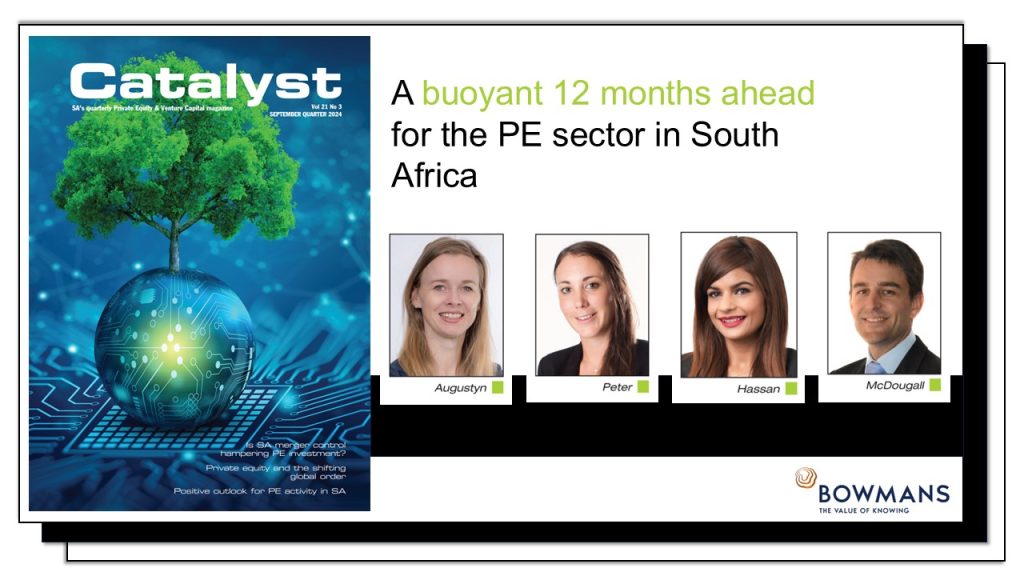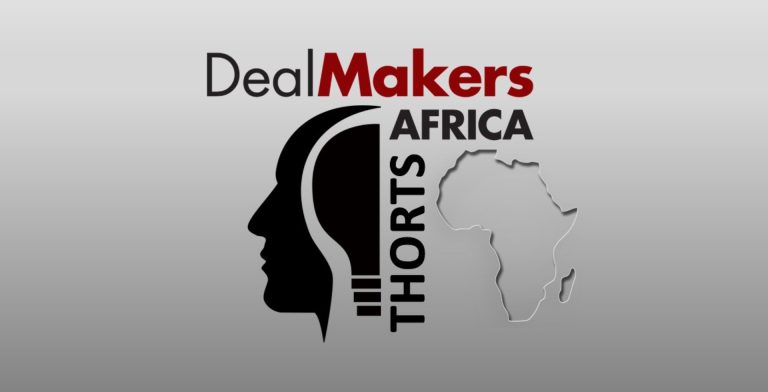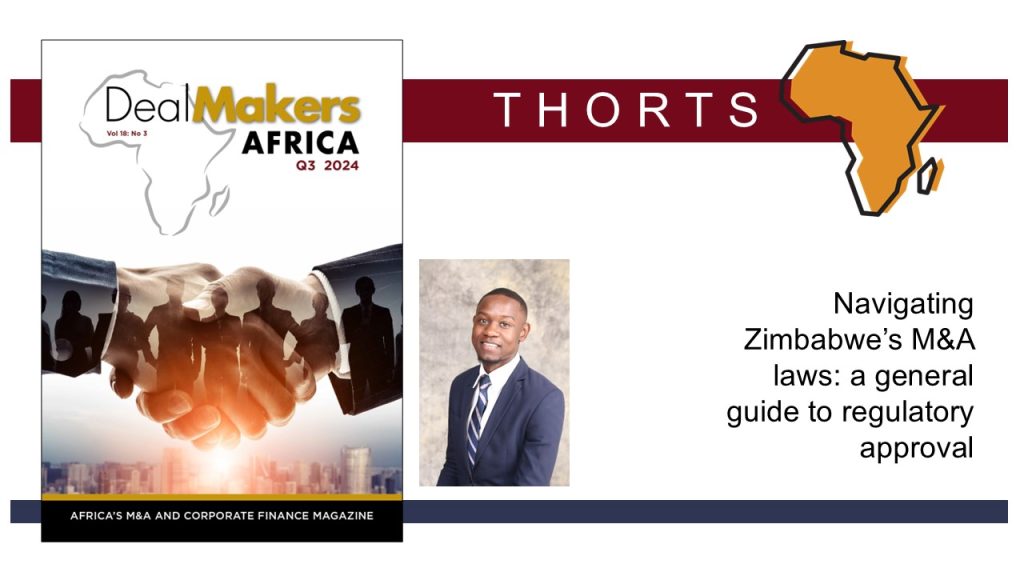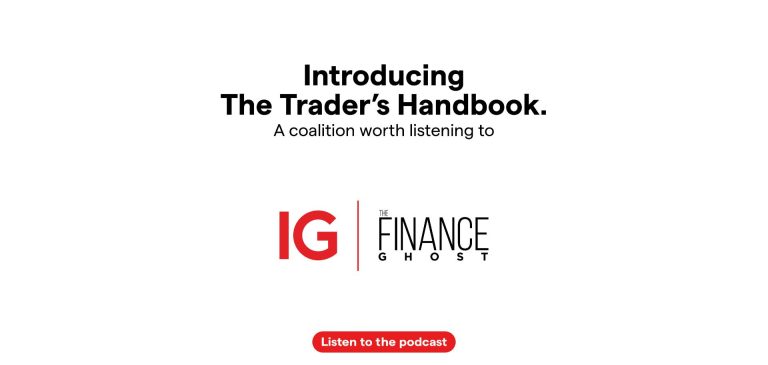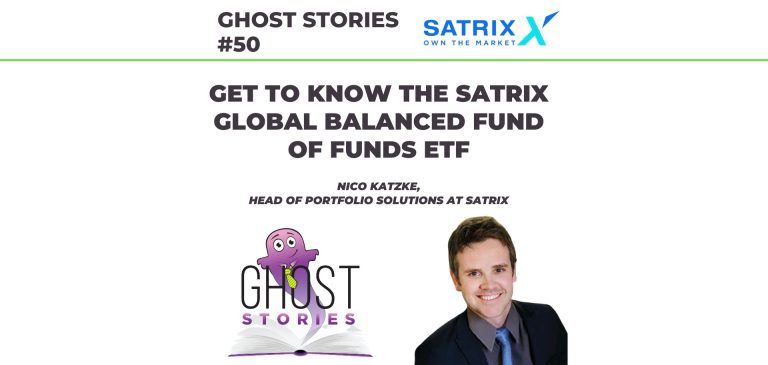Listen to the show using this podcast player:
The Satrix Global Balanced Fund of Funds ETF aims to provide local investors with optimally diversified exposure to a global basket of indices representing different asset classes. This is a low-cost, easy way to invest in a mix of equities, bonds, infrastructure, property, credit and cash assets.
Nico Katzke, Head of Portfolio Solutions at Satrix* joined me to explain the concept of a balanced fund, the strategic asset allocation in this ETF and how Satrix has managed to achieve this exposure at just 35 basis points a year in costs.
You can learn more about this brand new fund here.
*Satrix is a division of Sanlam Investment Management
Satrix Investments Pty Limited and Satrix Managers RF Pty Limited are authorised financial services providers. Nothing you have heard in this podcast should be construed as advice. Please do your own research and visit the Satrix website for more information on all their ETF products.
Full transcript:
Introduction: This episode of Ghost Stories is brought to you by Satrix, the leading provider of index tracking solutions in South Africa and a proud partner of Ghost Mail. With no minimums and easy, low-cost access to local and global products via the SatrixNow online investment platform, everyone can own the market. Visit satrix.co.za for more information.
The Finance Ghost: Welcome to this episode of the Ghost Stories podcast. It’s another one with the team from Satrix, so you know you’re going to learn some great stuff. Nico Katzke is joining me this time around.
Nico, we are going to be talking about a pretty interesting new product coming out of Satrix, so I’m very stoked to be having this chat with you as always. We’ve had some really good conversations this year ranging from high-level investment themes all the way down to products. This one is about a product, but again, it includes some pretty important investment concepts as well, and it’s something we haven’t actually spoken about before, which is balanced funds.
The product we are talking about is the Satrix Global Balanced Fund of Funds ETF. Quite a mouthful for this time of year, I’ve got to tell you. You got to really concentrate for that one. But the name is less important than what’s in it and how good a product it is. Thank you as always for joining me on the show.
Nico Katzke: Thanks, Ghost. Thanks for having me. Yes. Excited to get stuck into the detail of this fund.
The Finance Ghost: Yeah, absolutely. I think let’s just start with basically the most fundamental concept of the lot, which is what is a balanced fund and what is the difference between this thing and a more traditional equity fund? Why might a balanced fund be more suitable for a particular investor?
Nico Katzke: So it’s a great question. I think, to start off with, the main idea behind a balanced fund is to offer investors diversified exposure to different asset classes in an optimal blend. Hence the name balanced. It aims to balance risk exposure between different asset classes that may include everything from bonds, commodities, real estate, credit, equities, etc.
Now contrast this to an equity fund like the Satrix Top 40 ETF or the S&P 500, which invests in shares only. In other words, through a balanced fund, you’re getting a balanced exposure to the different asset classes that are on offer. Balanced funds generally are a great solution for investors that find the choosing of which asset classes to invest in daunting. Now, we all know we shouldn’t place all our eggs in one basket, and so balance funds help you in being optimally diversified. In other words, picking different baskets to place your eggs in.
Satrix has actually been successfully managing balanced funds for more than a decade now with our flagship Satrix Balanced Index Fund having outperformed industry peers more than 90% of the time on a rolling three year basis since inception. It’s wonderful performance that we’ve delivered there. In fact, up to the end of October, it’s also in the top 90th percentile, so top decile and top quartile respectively over one and three years compared to active peers in the balanced fund space.
So there’s actually clearly nothing passive about this performance, right? Our performance has also been one of the most consistent within our market over the past 10 years. There are several reasons for us being well positioned to add a lot of value for clients through our balanced fund range that we can unpack here for sure. But just for now, just to sort of set the scene, we do have a lot of experience in managing balanced funds and we are very excited to bring this Satrix Global Balance Fund ETF to market where we apply our portfolio design skills and index tracking capability to introduce this global balanced fund in a low cost ETF vehicle, which is a first for the South African market.
The Finance Ghost: So I think, Nico, let’s run through some of the constituents then of a balanced fund. I’m thinking of some of the really traditional advice – you know, advice is always a dangerous word – but that sort of 60/40 split, equities and bonds, some of these rules of thumb, let me call them, that tend to find their way into the investment narrative.
Balanced funds kind of speak to that concept a little bit, but there’s a lot more in there. If I have a look at the documents for this thing and what’s actually in there, you’ve got a mix of developed and emerging market equity. You’ve got some infrastructure, you’ve got some property, some bonds, some credit funds. It’s all very interesting.
So what is the backstory here in terms of the asset allocation strategy? These percentages are never an accident. I know for a fact that there’s lots of thinking that goes into them. So what is the approach there? What does the back testing look like? You know, what are you trying to achieve with this then?
Nico Katzke: That’s actually a great question. There’s a lot of work that goes on under the hood when it comes to arriving at our strategic asset location for our balance funds. And it’s one of those almost underappreciated facts, if you like, that there’s really no such thing as a passive balanced fund. All balanced funds have a very active design, so you actually have to decide how you allocate to the different underlying asset classes.
There’s also no clear benchmark, right? You mentioned 60/40, that’s a traditional split between equities and bonds, but there’s no optimality behind it. There’s no consideration of what the world might look like or what factors are influencing markets. It’s simply a rule of thumb, if you like.
So we go one step better and actually look at, to your point, different back tests, different analyses that we run. So our CIO Kingsley and myself, we work very closely together with actually doing the modelling and running this by different teams inside Sanlam. And we always joke that the perception is that the SAA comes to Kingsley in a dream. I can very firmly state that that is not the case. We actually do a lot of work behind our strategic asset location.
The Finance Ghost: SAA being strategic asset allocation, not failed airlines! That’s anything but a dream, more of a nightmare.
Nico Katzke: That’s it. That’s it. Now, in addition to the SAA or strategic asset allocation, like you said, not the airline, you also have, well, you can also think of it from a static asset location. So that’s where to your point, you just statically apply a 60/40 split. Ours is strategic, where we actually think about this very carefully and design it to be optimal. But you also get tactical asset locations or TAA, where active managers look to add value by changing their strategic asset locations to take advantage of short-term opportunities. Now this is where our balanced fund approach differs in that we don’t deviate from our optimal blend in the short term. There’s a lot of research behind this that has quite convincingly shown that globally, not just in South Africa, technical efforts on the whole actually detract value from a portfolio and end up simply adding a lot of trading costs. Fighting the urge to act often protects us from ourselves in life. It’s generally a good principle to apply. It’s quite the same way that changing lanes in traffic might make you feel like you’re adding value, but many times you simply end up behind a truck or find yourself having to cut back in your lane, old lane, and annoy other drivers in the process.
It’s mostly better staying in your lane, in the lane that will get you there quicker, else you end up burning more fuel, arriving at work with higher blood pressure, more irritated. So with our balance funds, we choose to stay in our predetermined lane and focus on reducing costs along the way and then try to ignore the noise in the short term.
Now, as I’ve mentioned, we have great experience and quantitative capabilities when it comes to modelling and backtesting in order to determine our optimal blend of assets. We also fortunately tap into the broader collective brain power within Sanlam that allows us to incorporate diverse views into our analyses. So to my earlier point, it doesn’t come to us in a dream. There’s actually a lot of quantitative work that goes on behind the scenes, a lot of internal discussions to arrive at an optimal blend of assets that best place the odds in favour of investors looking ahead over the medium- and longer-term. Now, we always look to pair quant insights with deeper fundamental discussions and forecasts, which ultimately leads us to arrive at our optimal strategic asset location.
The Finance Ghost: Yeah, it makes a lot of sense. It’s super interesting stuff, and the whole idea of these balanced funds is you’ve got diversification baked in, right? It’s not just an equity exposure, because even when you take pure equity exposure, yes, you might be buying a nice broad market index, but you’re then missing out almost entirely on certain other asset classes, like credit funds, for example. Yes, you might get some property, but not necessarily in the same way you’re not getting any bonds, emerging markets or otherwise. So that’s the idea here, right, is it’s kind of just this instant diversification? One monthly debit order does it all essentially in terms of a long-term exposure.
Now, obviously it’s a bit more complicated than that and it’s not necessarily suitable for everyone and all the usual disclaimers, but that is kind of the concept of a balanced fund. But it also means it’s a bit less risky, right? So, this kind of goes back to the advice around, or again, rule of thumb, around at different points in your life, you should be taking on different levels of risk. Would it be accurate to say that balanced funds, generally speaking, less risk, a little bit less return potentially over time, so maybe more suitable for older investors. Or is it not quite that simple?
Nico Katzke: I wouldn’t say it’s necessarily that simple. Over the short-term, specifically, it depends what your investment term is. Over the shorter-term, certainly there’s more risk balance in place. So, for example, balance funds, credit instruments that are added to the portfolio that allow or at least give you some downside protection. That certainly is the case. But look, it is definitely more sort of moderate to aggressive portfolio positioning because of the high asset allocation to equities, so there is a risk component involved. But yeah, I think ultimately what we’re trying to achieve is a more balanced spreading of risk so that you’re not concentrated to a single asset class. It goes back to my earlier point. Sometimes we think that ETF investing is easy and it certainly is. It’s low-cost, it’s easy access, it’s easy to understand. But how do you pick which ETFs to hold in a blend?
That’s oftentimes a very daunting exercise for investors, retail investors, specifically unsophisticated investors that apply their trade elsewhere than in financial markets but just want to invest. So this offers them a blended approach in an ETF wrapper where it’s low cost, transparent, but diversifies and spreads your risk quite nicely. So from that perspective, it definitely achieves that.
We can never guarantee that there is no risk. There is always risk to the downside. But over time that potential for downside risk pays you upside premium. If you’re able to stomach that over the medium to long term, that’s where you see the value unlock.
The Finance Ghost: Yeah, and it’s going to have exposure to things like cycles as well. Obviously interest rates play a huge role. Anyone who didn’t observe that over the pandemic, you really missed out on, I think, a great learning opportunity. Obviously you can still go and just see it, just go and draw charts of things, just go and read up about it. Because we really had this wonderful course, or I like to say crash course, but then it always feels like a bit of a lame pun because there was some crashing – but we really did have that in terms of the effect of interest rates and very sharp moves. I think before that, you go and learn about what interest rates do, but it takes a lot longer. There’s a cut here or a hike there and everyone tracks the metrics and it slowly happens over time. Over the pandemic we saw the fast-forward version of that and now hopefully we’re in a rate cutting cycle. The rates don’t seem to be getting cut quite as quickly as I would have liked, necessarily, but I think a balanced fund like this is probably not a terrible idea in a rate cutting cycle because there’s some stuff in there that benefits from lower interest rates, like property, like infrastructure, for example, long-dated cash flows where the present value goes up if rates are lower. Would you say that’s a fairly accurate view on this thing?
Nico Katzke: Yeah, I think so. Look, it’s also important to keep in mind that when you’re buying this ETF, you’re effectively – it’s an off the shelf solution that bakes in all our thinking and all our processes and design into this portfolio. So certainly the higher probability of entering a rate cutting cycle factored into our thinking and we position it to take advantage of some of the asset classes that will have tailwinds in this rate cutting cycle.
Now, maybe just in terms of what you are investing in through the Satrix Global Balanced Fund of Funds ETF, let me just unpack that a bit. 45% of your exposure will track the MSCI World Equity Index, which is comprised of more than a thousand of the largest developed market companies. Of this, around 70% will be US equity exposure, so you do get a lot of exposure to the US tech sector. We still think there’s a lot of upside potential remaining there. It’s only a fool that will bet against the US when it comes to where growth and innovation resides.
We’re also tracking the MSCI Emerging Markets index at 10%, so that’s where you get exposure to China, India and other economies that are kind of on the frontier of development, so diversifying that.
It’s in total 55% exposure to global equities, strictly global equity exposure. But you also are positioned to take advantage of the rate cutting cycle through several other asset classes that we include.
The first is you get exposure to real assets in the form of property and infrastructure, which are both leveraged plays that stand to benefit should interest rates decline, right? Think of the infrastructure index as really a collection of listed companies that apply their trade in the construction or servicing of infrastructure projects. It’s not that you’re investing in infrastructure itself, like buying roads and bridges, but rather the companies that service those. This index has traditionally offered a sensible risk balance to global equities and should also experience tailwinds in this rate cutting cycle due to their leveraged balance sheet type structure. Now, property indices likewise benefit from rate cuts as this directly reduces their debt servicing costs, which typically is a large cost component to property companies.
And then of course there’s also 15% exposure to aggregate global fixed income indices, as well as a 5% exposure to inflation linkers and a 5% exposure to global credit. All of these asset classes, so the real assets as well as the fixed income and credit asset classes, stand to benefit from a rate cutting cycle. There should be good upside for investors there if the Fed continues cutting rates, which we believe is quite likely going forward.
The Finance Ghost: Obviously these underlying exposures are rebalancing over time. You talk about the MSCI Equity Index and that’s rebalancing over time. This will also rebalance right back to those original weightings in the strategic asset allocation, the SAA. Is that right? Is that basically how this is going to work over time?
Nico Katzke: So we do allow the weights to drift over a six month period before we rebalance it back to its target SAA. This allows some momentum drifting to occur and reduces overall trading costs as well. You don’t want to rebalance back every month and incur those costs. We just allow some drifting to happen every six months.
Then every two years, we do a full review of the strategic asset location, just to give you comfort that we are considering how the investment environment and landscape has shaped over the past few years and then decide whether we want to incorporate changes in terms of distributions. This will also occur quarterly, meaning that dividends and other sources of income that are accrued through the quarter will be paid out to investors in full at the end of each quarter.
Now, many investors then opt to reinvest these dividends back into the fund, which over time makes a big difference in terms of compounding returns. Another benefit of this fund’s structure is that it benefits from the dividend withholding tax agreement that we have with the US. This makes up a large proportion of the fund, right? The impact of this dividend withholding tax benefit that we accrue to investors is material over a long period. It’s in fact not always obvious that a global fund structure can provide this benefit to investors. So all of this we take into account and really build a very efficient balanced fund structure for investors.
The Finance Ghost: Yeah, because there’s some cleverness here. It’s not the norm that an equity ETF lands up in a global balanced fund like this. The plumbing behind it is quite interesting. I know you have an international partner on this. It might be quite good to just understand a little bit more about that for those who are considering this and understanding why this is actually quite an unusual thing. Maybe the clue is in the name – the fund of funds name?
Nico Katzke: Yes. So the ETF feeds into seven different global ETFs from both Amundi and iShares, the latter being the largest index tracker in the world and a team that we worked quite closely with to launch several feeder ETF structures locally. Now these seven different global ETFs that we feed into proxy for the different asset classes that we gain exposure to.
So, there’s also a 5% exposure to a US dollar liquidity fund that offers a highly liquid alternative to holding pure cash in the portfolio. It just gives you that little bit of upside even on the cash portion. Now each of these ETFs that we feed into are large, very liquid funds that we access efficiently and at a very low cost point. The benefit of this is then passed on to end-investors, making it a really compelling fund offering for local investors. While fund of funds is in the name, as you mentioned, it is ultimately, really if you think about it, it’s a fund of ETF funds, meaning you don’t have the typical higher cost structure associated with a fund of funds structure.
And we’re also of course well experienced in structuring feeder ETFs. We’ve launched several in the past and they’ve worked very well for investors. So this puts us in a great position to actually wrap all of this together in a single ETF that trades on the JSE in rand and that investors can get easy access to, knowing that the underlying building blocks are tracked and traded in the most effective way.
The Finance Ghost: Yeah, speaking of that, what do the costs come in at on this fund? Where do you actually come out?
Nico Katzke: It comes out at a very, very attractive cost point – 0.35% management fee per annum. I mean this is phenomenally low-cost if you think about it for accessing global funds. Ultimately, the Satrix Global Balanced Fund of Funds ETF, the mouthful name, is a new index tracking balanced fund that will be listing on the JSE as an ETF on the 4th of December.
The IPO closes now on the 25th of November, this coming Monday. And for those investors participating in it, you will actually incur no brokerage fees or experience any bid offer slippage if you participate in the IPO. Now this can be actually quite material, so it’s a great opportunity for you to get access at the net asset value and get your exposure at the lowest cost point effectively.
Ultimately this ETF constitutes a global balanced exposure, like I mentioned, that trades in rand on the JSE and gives local investors a great hedge to rand weakness and also the opportunity to participate in offshore markets in a very low-cost structure. Think of it, gone are the days where investors had to incur great effort and expense to get offshore exposure. The problems with repatriating proceeds, onerous tax considerations made it an option only for those that had scale and expensive advice and a very big incentive to gain offshore exposure. Your typical run-of-the-mill retail investor in the past really didn’t have easy, low-cost access to global asset classes. Today this has changed completely. You can now access a diversified blend of global asset classes in a single ETF that has underlying index building blocks that are well diversified and serve a very specific, well-thought-through purpose in your portfolio.
Maybe to take a step back from this and just think about what this means, investors might find this interesting just from that perspective to say there’s no minimums to this. You can invest a thousand rand, get a diversified blend of offshore exposure, really easy to do trades very simply, you know what you get from our products, it’s low-cost index trackers – I mean, it’s just a great offering that we’re bringing to the market.
The Finance Ghost: Yeah, and the fees are such an important part of it. By the time you work out just how many fees are paid in the typical investment structure, the financial advisor, the product provider, the active management fees etc. it’s a good few hundred basis points a year sometimes.
And this is basically that entire solution – yes, minus the bespoke advice, but that bespoke advice needs to be worth like 200 basis points a year just to make up the gap. Now that’s not to say you shouldn’t speak to a financial advisor, most people should. But I think this is a really compelling offering and maybe what you should ask your financial advisor is why don’t you have exposure to something like this at 35 basis points a year as opposed to some of the far more expensive ways to be invested in the market? Because this is a very elegant way to just have that balanced exposure in one instrument, one shot.
That’s a good question for your financial advisor. And some of the answers back might be kind of awkward because there’s going to be some interesting stuff there around who that financial advisor is incentivised by etc. I won’t go into it more than that. Ask these questions, I think that’s the point that we just want to get across here. It’s your money at the end of the day and it should be your decision what happens with it long term. Take the advice, take it into account, but just understand all the fees involved because I must say, at 35 basis points, this thing is pretty compelling. It takes all of your expertise in strategic asset allocation, it’s tradable, it’s liquid, you can do it in your tax-free savings account up to your limits every year, and then you can just do it normally. It’s just a really good product.
This is why I love partnering with you guys and doing these podcasts is because it’s very easy to believe in what you’re doing. Because I know the impact that Satrix had on my own investment journey with these ETFs and the impact it can have on others. Especially when I speak to people taking their first steps in the market, it’s always very daunting. They just don’t know where to start. They know they need to save, but they don’t know where to start. Products like these are great for that. They really are.
Nico Katzke: It solves a lot of problems. And to your point, the cost structure is incredibly compelling. It might not seem like a big difference, you know, 0.35% versus let’s say 1.5%. But if you compound that over time over a 10- or 15-year period, it’s unbelievable how big the impact of fees are and how it compounds against you. It’s unbelievable. We’ve ran some numbers where I promise you, your listeners won’t believe how big an impact it has over a 20-year period, an additional 1% fees. It’s unbelievable. You’re right.
And you mentioned advisors. I would always caveat that there are certain types of advice that are not generic, that’s very specific to an investor. For example, tax structures, doing what’s based in terms of retirement planning, taxation and the like. You absolutely have to get professional advice for those decisions. But when it comes to discretionary investment, you know, just putting aside R10,000 every month to build a nest egg – absolutely, if you’re paying a lot for getting very simple advice, or that advice is obscure, or you don’t know exactly what you’re investing in, ask those questions, right? Take control of your own destiny when it comes to investing and building wealth. But when it comes to those bespoke decisions, like I mentioned taxes and those things, maybe get good advice there. But always, always know what you pay and know what you get. That’s a principle that if you apply over time, I promise you there’s gold at the end of the road.
The Finance Ghost: Absolutely, Nico. I think that’s a great place to finish off and I fully agree with everything you said there. Thank you once again for making time for this. We’ll get this podcast out in time for people to participate in the IPO, should they so choose, and with the benefits that you mentioned earlier.
But in case you don’t get there in time, this thing will be listed on the market. It’s like any other ETF, you can buy it anytime you want. You can go check out the Satrix Investment platforms to do it that way as well.
So Nico, thank you very much for your time in a very busy week. Appreciate it and we’ll do another one of these soon.
Nico Katzke: Thank you for your time and for the listeners as well. Cheers.
